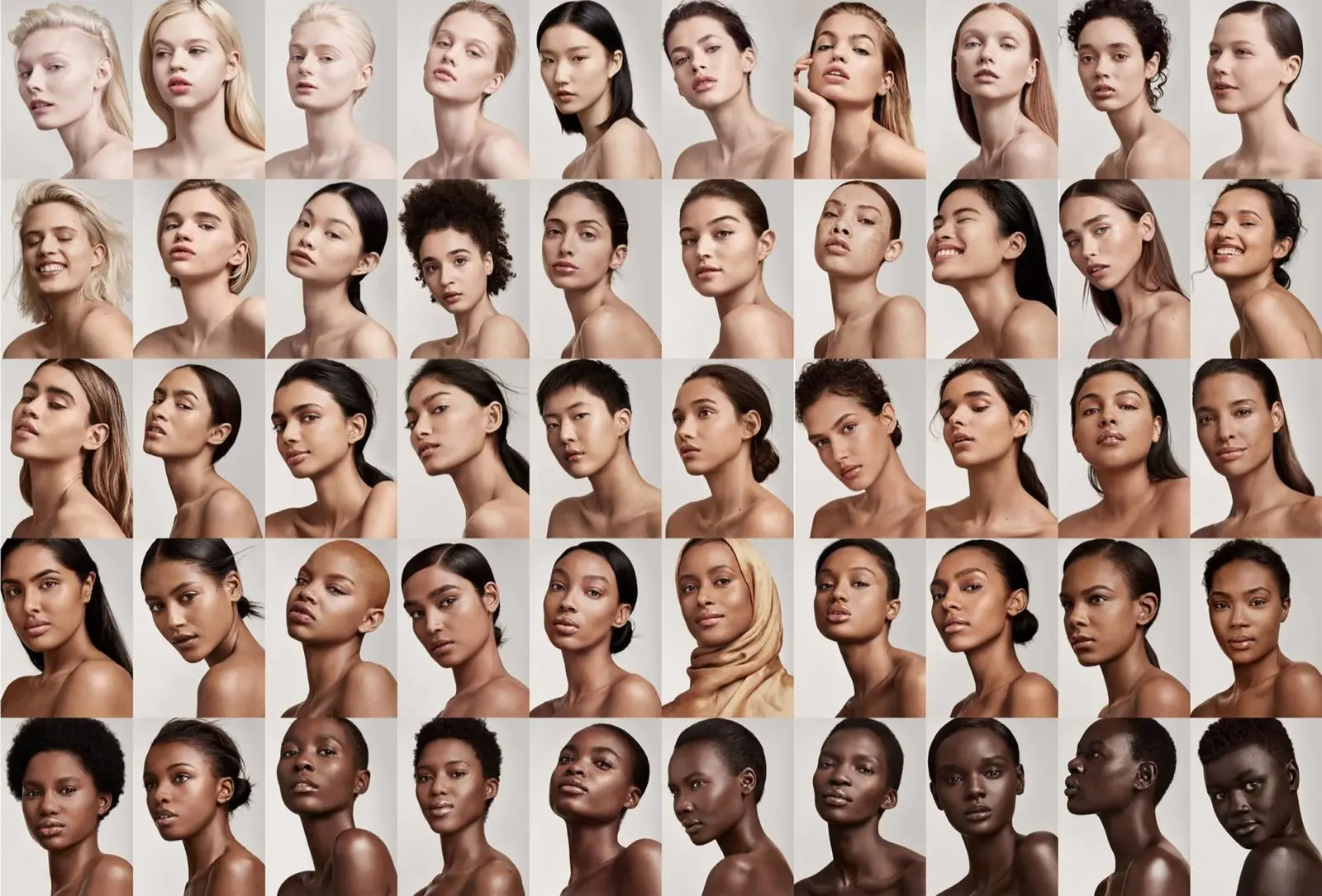For far too long, the beauty industry has marginalized darker skin tones, often relegating them to afterthoughts until a public outcry forces a rethink. This reactive approach to inclusivity not only highlights a systemic oversight but underscores a reluctance to embrace a diverse consumer base proactively. Why does it take backlash for brands to adopt inclusive foundation shades? Fenty Beauty, led by Rihanna, offers a blueprint for getting it right from the start.
The Status Quo and Its Discontents Historically, the beauty industry has catered predominantly to lighter skin tones, with brands like YSL, Tarte, and IT Cosmetics facing significant backlash for their limited shade ranges. These controversies underscore a persistent issue: a lack of genuine commitment to diversity and inclusion. This is not just about adding more shades; it’s about recognizing the diversity of human skin tones at the outset, rather than as an afterthought.
Fenty Beauty’s Inclusive Revolution: Rihanna’s $582M Impact In contrast, Fenty Beauty revolutionized the industry in 2017 by launching with 40 foundation shades, now expanded to 50. This wasn’t merely a business decision; it was a statement. Rihanna’s involvement ensured the brand’s offerings weren’t just inclusive but also high quality, suitable for all skin tones from the get-go. Fenty Beauty’s approach—rooted in Rihanna’s own experiences and frustrations with the beauty industry—demonstrates the power of inclusivity paired with celebrity influence.
The Impact of Social Media and Public Response The role of social media in amplifying voices that demand better is undeniable. Platforms like Instagram and Twitter have become battlegrounds where consumers hold brands accountable. The backlash against brands like YSL and Tarte wasn’t just a momentary blip; it was a clarion call for an industry-wide change, echoed by the rapid success and industry accolades Fenty Beauty garnered.
Strategic Steps Towards Genuine Inclusivity For brands looking to mirror Fenty Beauty’s success, the path forward involves several key strategies. It starts with diverse teams that reflect the brand’s consumer base, extensive research and development, and a commitment to listening to customer feedback. More importantly, inclusivity must be woven into the fabric of the company’s values, not just its marketing strategy.
Why is Shade Range Important? A limited shade range sends a harmful message that people of color are an afterthought. This not only affects brand perception but also consumer loyalty. Fenty Beauty’s strategy shows that with the right range and marketing, brands can achieve not only ethical success but substantial financial gains.

The fenty effect
Lessons from Fenty Beauty’s Inclusive Revolution: Rihanna’s $582M Impact Other brands can learn from Fenty Beauty’s proactive approach. By analyzing past failures within the industry and embracing a philosophy of inclusivity from the onset, companies can avoid backlash and instead be celebrated for their foresight and respect for diversity.
A Call for Sustained Change The “Fenty Effect”—a term now synonymous with shaking up the beauty industry—demonstrates a clear shift towards inclusivity that other brands are beginning to follow. It’s a testament to the impact of listening to and valuing all consumers equally. As we move forward, the hope is that more brands will recognize this not as a trend but as a permanent shift essential for future relevance and success.

















